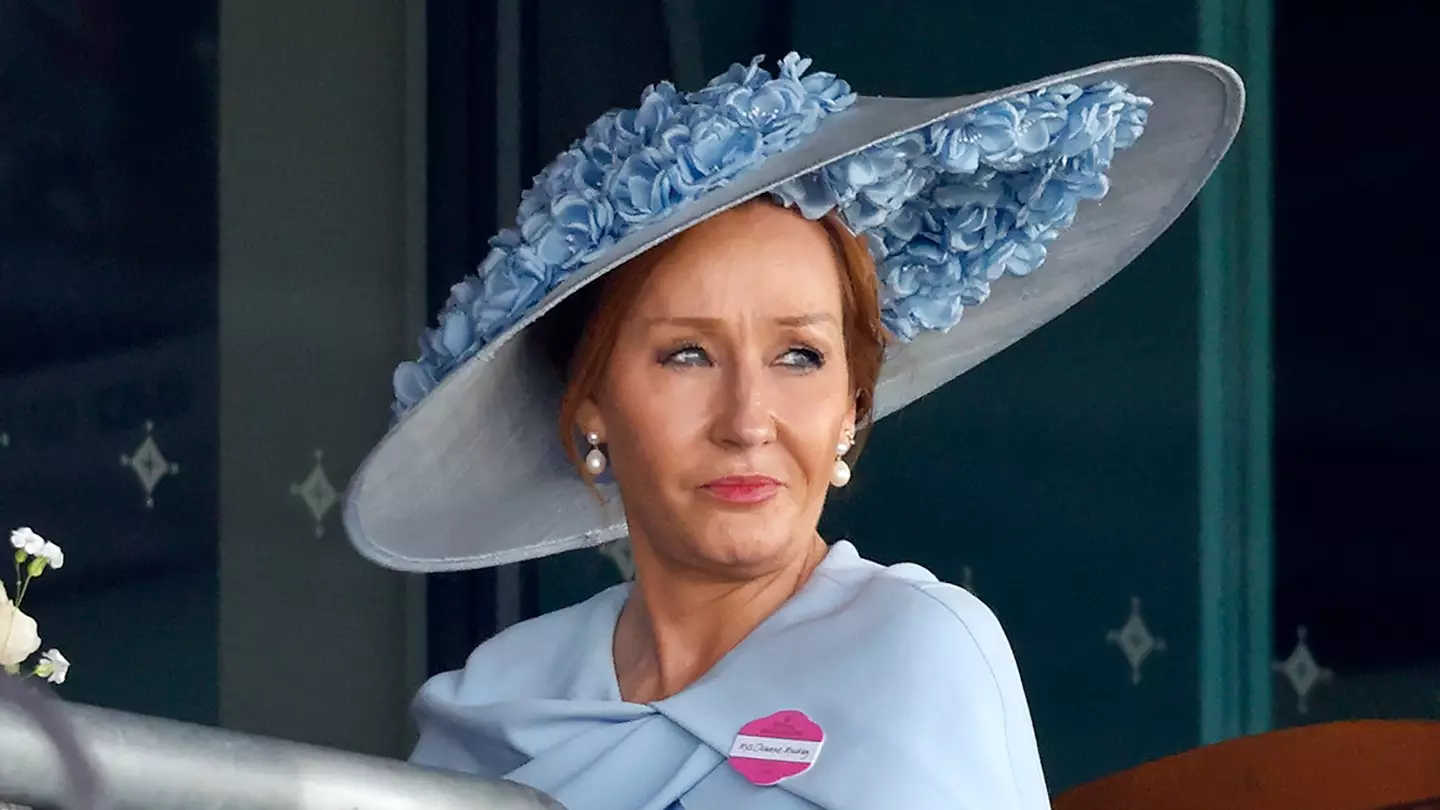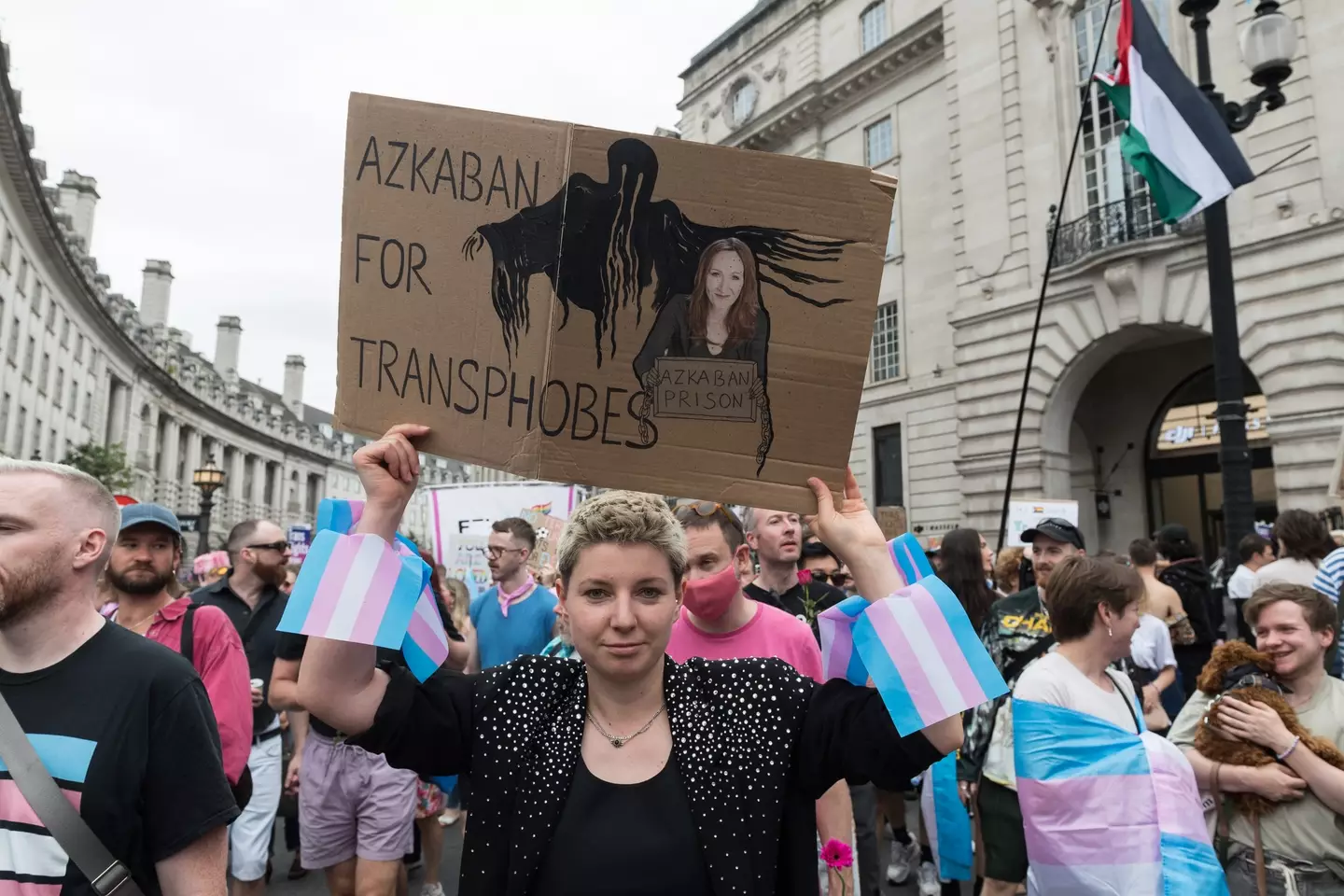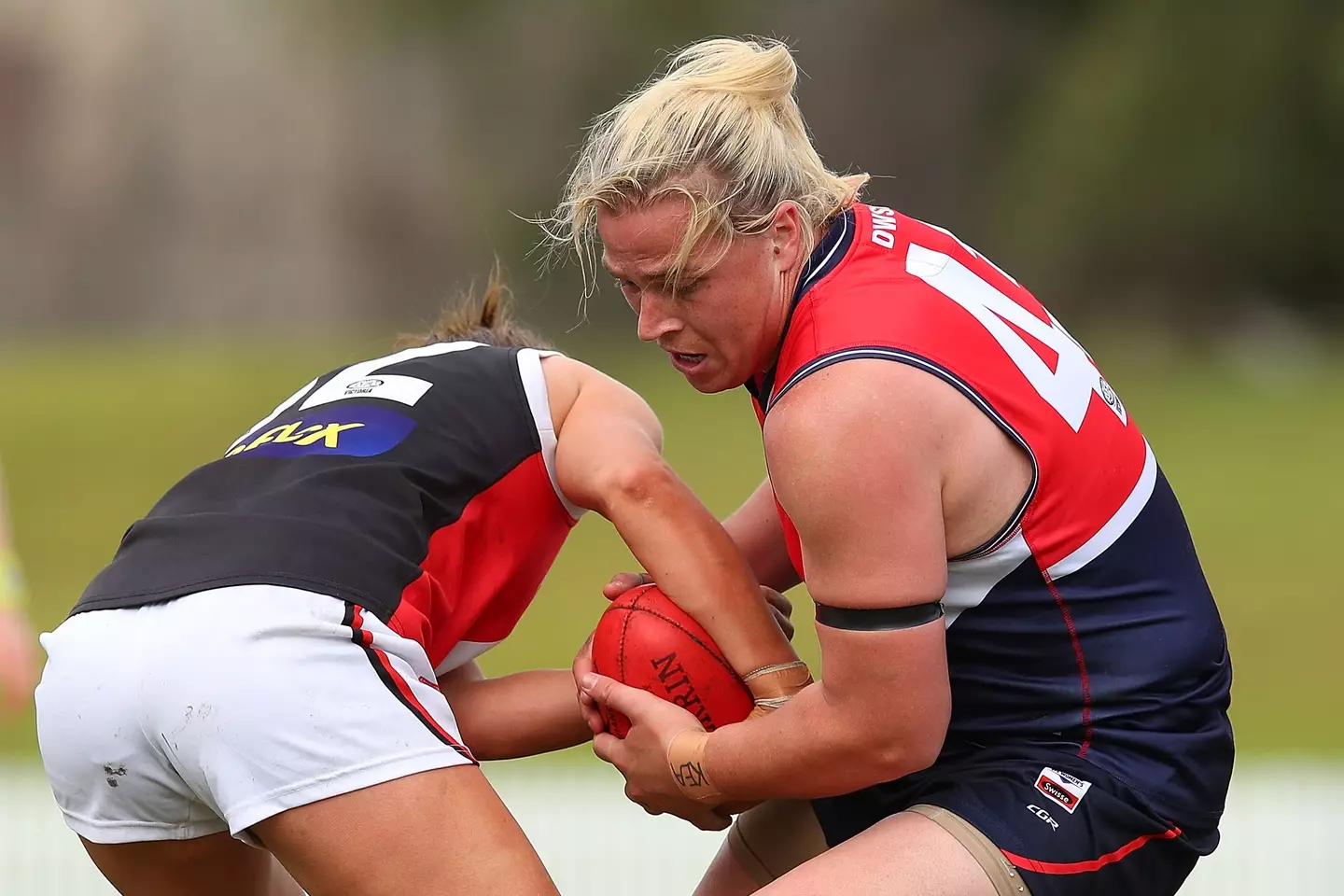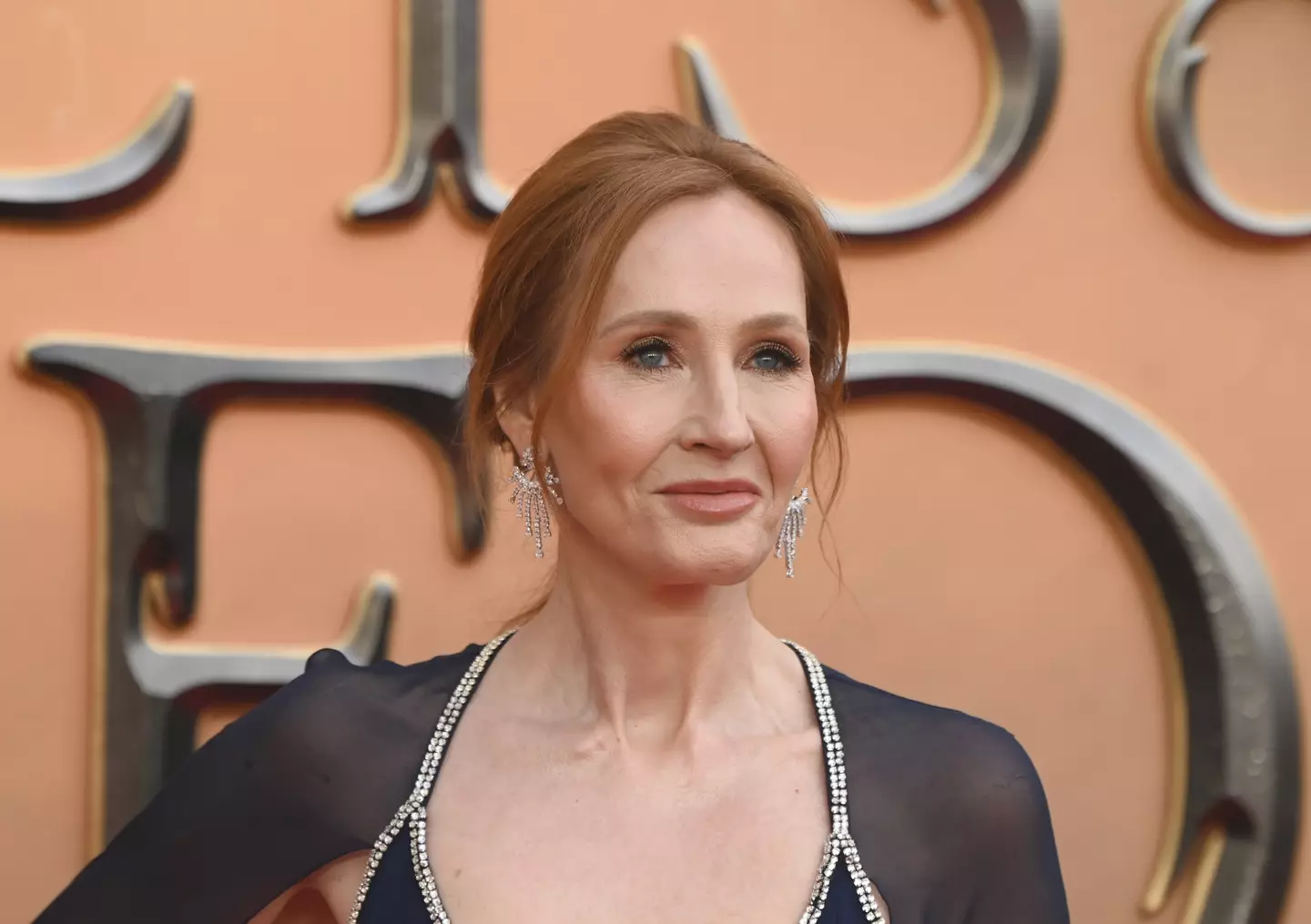
Harry Potter author JK Rowling is once again using her platform to take aim at the transgender community amid conversations regarding inclusion in women's sports.
The writer first began spouting her anti-trans commentary back in 2020, mocking trans individuals on Twitter in response to an opinion piece about 'people who menstruate'.
"I’m sure there used to be a word for those people," Rowling hit out at the time. "Someone help me out. Wumben? Wimpund? Woomud?"
Since then, she has been painfully vocal during debates about the allowance of transgender individuals to compete in sport tournaments aimed at cisgender females, including by supporting US President Donald Trump's controversial policy to ban this.
Advert
Earlier this year, for example, 60-year-old Rowling commended fencer Stephanie Turner for refusing to compete against trans opponent Redmond Sullivan.
And during last year's Olympic Games in Paris, she led an aggravated dispute against Algerian boxer Imane Khelif, concerning her gender.

This week, however, Rowling has taken aim at Australian handball player Hannah Mouncey.
Appearing on the Sacked podcast over the weekend, the 35-year-old athlete - who is transgender and identifies as female - expressed her hope to play for the women's team in both the 2028 Los Angeles Olympics and the 2032 Brisbane Olympics.
Despite Mouncey admitting that this wasn't a likely occurrence, Rowling has since fired shots in the sportswoman's direction.
Taking to Twitter, she hit out: "Man fears he won’t be allowed to cheat his way to the Olympics by playing against women.
"Man says anti-cheat sentiment is being 'weaponised' against men like him, who cheat. Read more here about why the cheating man is sad and why the women he might injure just don’t matter."

Mouncey discussed on the podcast allegations that transgender athletes who were born male have an advantage over females during competitions.
"There’s this idea that trans athletes have an unfair advantage, but the results don’t show that," she explained.
"I’ve always believed in fairness and restrictions where needed, but blanket bans are not the answer."
Mouncey's comments directly refer to a transgender policy that the International Handball Federation put into place in 2022, which ruled that trans athletes must abide by a number of clauses to compete against female sports players.

The policy states that these individuals 'must demonstrate to the satisfaction of the Expert Panel (on the balance of probabilities), in accordance with clause 4, that the concentration of testosterone in her serum has been less than 5 nmol/L1 continuously for a period of at least 12 months; and she must keep her serum testosterone concentration below 5 nmol/L for so long as she continues to compete in the female category of competition'.
The contract also states that trans athletes need 'a test result from at least 12 months but not earlier than 14 months prior to the athlete’s first competition which indicates that the transgender female athlete’s total testosterone level in serum was below 5 nmol/L', as well as 'an affidavit from a medical professional stating that the transgender female athlete’s total testosterone level in serum has been below 5 nmol/L for at least 12 months prior to the athlete’s first competition'.
What has the Olympics said about trans athletes?
Last year, the International Olympic Committee announced new guidance for trans and intersex athletes competing in the games which replaced those from 2015.
It outlined 10 key principles which are 'grounded on the respect for internationally recognised human rights', most notably dropping controversial policies that required athletes to undergo 'medically unnecessary' procedures or treatment.
"It aims to support them to provide pathways to inclusion in elite sport for all athletes, without discriminating on the basis of gender identity or sex variations, while defining disproportionate advantage in ways that preserve meaningful and fair competition," the IOC said.
While trans athletes are allowed to compete in the games, the ultimate decision lands with individual international and national sports federations.
The IOC's guidance is not legally binding, and it does not mandate it - merely advising sports bodies on eligibility criteria.
Topics: JK Rowling, Celebrity, LGBTQ, Sport, Olympics